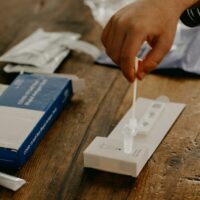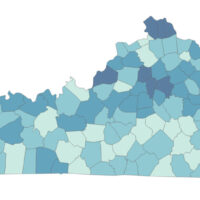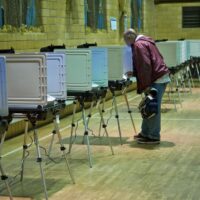First, it was alpha, then beta, then gamma. And by mid-August, the fourth coronavirus “variant of concern,” delta, had overtaken the United States.
To avoid confusion and lessen stigma, the World Health Organization early this year began naming COVID-19 variants after letters in the Greek alphabet.
Since then, seven variants of interest or concern have been identified. (A few letters have been skipped for various reasons, which is why we’re on the 15th letter.)
On Nov. 26, the WHO classified the most recent variant of concern — omicron, which was identified earlier that month in South Africa. By Wednesday, the United States had confirmed its first case of the mutated virus, discovered in an individual who had recently returned to California from South Africa. As of Saturday evening, omicron had been detected in at least 15 states. No cases of the variant had yet been confirmed in Kentucky.
What we know: While scientists caution that it’s still too early to say if omicron will be as dangerous as delta, early data suggests it could spread up to twice as fast. Preliminary evidence also indicates that there may be an increased risk of reinfection with omicron as compared to other variants of concern, but, again, information is limited.
Studies are currently underway to assess transmissibility, the severity of infection, the performance of vaccines and diagnostic tests, and the effectiveness of various treatments. Here’s what health officials know so far.
The big picture: A variant of a virus is one that has mutated in a way that bolsters its spread or severity compared with the original strain. Each time the virus spreads to other people, it is given another chance to mutate. It’s yet another reason to get vaccinated against COVID-19, according to health officials — to limit the virus’ opportunities to mutate.
Still, vaccination remains a topic of much contention. On Tuesday, two federal vaccine mandates were temporarily halted. A Kentucky judge blocked an order requiring federal contractors to be vaccinated by Jan. 4 and, in a separate case, a U.S. District judge from Louisiana temporarily blocked a federal vaccine mandate that would have required hospitals across the nation to make sure their workers were vaccinated by the same deadline. In both cases, Kentucky’s Republican Attorney General Daniel Cameron had joined several other states suing over the requirements.
What’s happening here: While the new variant hadn’t been identified in Kentucky as of Saturday evening, the Hopkinsville area has seen an increase in COVID-19 cases and hospitalizations in recent weeks.
- SUPPORT US: Like what we do? Consider making a donation to the Hoptown Chronicle, a nonprofit news organization
On Thursday, the health department confirmed 213 new cases, pushing the incidence rate to 43.2. It marks a return to the “red zone” for community transmission and a 60% increase from two weeks prior. Jennie Stuart has also seen a jump in patients being treated for the virus. On Wednesday, the hospital reported 23 COVID-19 hospitalizations — an increase of more than 50% from two weeks earlier.
Since the pandemic began, more than 11,000 Christian County residents have been infected with the virus and 136 have died of COVID-19. Last weekend, the Hopkinsville Art Guild memorialized some of those individuals by presenting their families with portraits of their loved ones during a ceremony downtown.
How to stay safe: While scientists study the latest variant and its repercussions, the vast unknown can be a bit nerve-wracking. Here’s the WHO’s advice on staying safe in the meantime: Keep a physical distance of at least three feet from others, wear a well-fitting mask, open windows to improve ventilation, avoid poorly ventilated or crowded spaces, keep hands clean, cough or sneeze into a bent elbow or tissue, and get vaccinated.
As the situation continues to develop, check our COVID-19 data page for the most recent information available.
Julia Hunter is the engagement editor for Hoptown Chronicle. Reach her at julia@hoptownchronicle.org.





